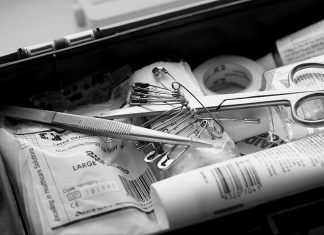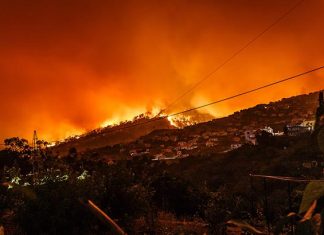Preparedness for travelers
By Brad Rohdenburg
Issue #81 • May/June, 2003
When the subject of preparedness comes up, do you think of having a stock of supplies in your kitchen pantry in case of a storm? Maybe a backpack...
Gee-Whiz: From Paper to Canning
By John Silveira (aka O.E. MacDougal)
May/June 2017 Backwoods Home
The greatest inventions in history are the ones we now take for granted. Fire and the wheel-axle combination are among them. If we weren’t taught in...
Start your food storage on $10 a week
By Alan T. Hagan
Issue #59 • September/October, 1999
If Old Mother Hubbard had had a food storage program before she went to her cupboard her poor dog would have gotten his bone. Given the fact...
Medical kits for self-reliant families
By Jackie Clay
Issue #60 • November/December, 1999
There may be a time, as close as tomorrow, when your loved ones need medication or medical treatment and there is no drug store open or doctor available....
Avoiding heat illness
<!--
Avoiding heat illness
By Gary F. Arnet, D.D.S.
-->
By Dr. Gary F. Arnet
Drink early and often to avoid dehydration. The body normally needs two to three quarts of water per day, but this can increase to...
Frostbite — Don’t flirt with this sneaky danger
By Tom and Joanne O’Toole
Issue #96 • November/December, 2005
Frostbite can be defined, in its most severe stage, as when your fingers and toes freeze and have to be cut off because of gangrene. Wow,...
With commonsense planning, you can survive hard times
By Jackie Clay
Issue #55 • January/February, 1999
Today, many people are afraid that hard times are about to descend upon us because of the Y2K computer date problem, also known as the Millennium Bug. Others...
Help your home survive in the path of a wildfire
<!--
Help your home survive in the path of a wildfire
By Brent Stainer
-->
By Brent Stainer
These firefighters fought hard to save this house, but the best way to save your house is to make basic preparations...
Disaster preparation!
By Gary F. Arnet, D.D.S.
Issue #74 • March/April, 2002
Are you prepared for a disaster that could affect the daily function of your life or the lives of your family members? Or do you even...
Food security 101
By Rowena Aldridge
Issue #138 • November/December, 2012
These days a lot of people are concerned, and rightly so, about their family's economic stability and security. Recently I've become aware of the ways in which I,...
Food security 101: part 2
<!--
Food security 101: part 2
-->
By Rowena Aldridge
Issue #139 • January/February, 2013
Last issue we talked about some things you can do to stretch your food budget and make great use of every bit of food...
Dollar Store to the Rescue
By Jeffrey R. Yago, P.E.
Summer 2019, Self-Reliance
I have talked with emergency responders who have traveled all over the country to volunteer their rescue efforts at disasters like the recent flooding in Texas. While much...
Survival storeroom
By David Eddings
Issue #130 • July/August, 2011
This story begins in the mid-nineties when the Y2K threat was in the news. Several members of my family thought it would be prudent if we started stocking...
The 7 core areas of preparedness
By Patrice Lewis
Issue #133 • January/February, 2012
As I write this article, it's early September. And September, as you may or may not know, is National Preparedness Month, sponsored by the Federal Emergency Management Agency...
Buying the right emergency radio
By Jeffrey Yago, P.E., CEM
Issue #98 • March/April, 2006
In our last issue I addressed how to select the best battery-powered lighting for your emergency needs. Recent examples of poor emergency response during the Katrina...
Bugging out in place
By Jackie Clay-Atkinson
Issue #163 • January/February, 2017
Some emergency situations require quick evacuation. You barely have time to grab your bug-out bag, gather the family, and run out the door. Most of us are ready...
































